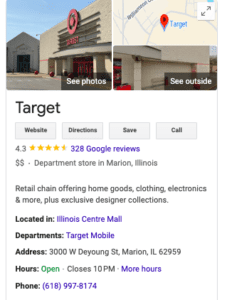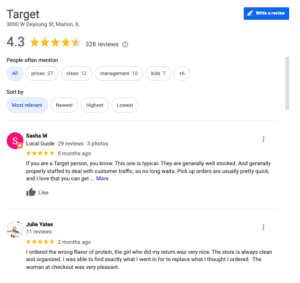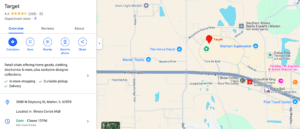Local search engine optimization (SEO) is a critical digital marketing strategy that helps businesses with multiple locations improve their visibility in local search results. It ensures that when potential customers search for services or products in their vicinity, your business shows up in the right place at the right time.
However, managing Local SEO across several locations can be challenging due to the nuances of each location, unique search behaviors, and varying levels of competition. In this guide, we’ll walk through 20 key steps to ensure your multi-location business dominates local search with multiple-location SEO.
What is Local SEO?
Local SEO focuses on optimizing a business’s online presence to attract local traffic through search engines. It’s especially important for businesses that rely on customers in a specific geographical area. When someone searches for a product or service near them, search engines like Google prioritize relevant local results in what’s known as the “local pack” — a set of three business listings that appear in a prominent position.
For multi-location businesses, local SEO strategies must address not just one location but every branch, office, or outlet. This means optimizing for local keywords, setting up distinct listings, and creating location-specific content that caters to local customers.

Local SEO Strategy for Multiple Locations
A successful local SEO strategy for multiple locations involves centralizing control while also ensuring each location receives the proper local attention. The following steps outline how to achieve this balance.
1. Create a Google Business Profile (GBP) for Each Location
Google Business Profile (GBP) is essential for appearing in Google’s local pack and on Google Maps. Set up a GBP for each location, ensuring that each profile includes accurate information such as address, phone number, business hours, and website URL.
2. Optimize Each Google Business Profile
Make sure that every GBP is fully optimized. Include high-quality images of each location, respond to customer reviews, and ensure consistency in contact information across all profiles. Use location-specific keywords in the business description.

3. Maintain Consistent NAP Information
NAP (Name, Address, Phone Number) consistency is crucial for multi-location SEO. Ensure that every listing for each business location uses the exact same format for NAP. This consistency should also extend to any third-party websites, such as directories or review sites.
4. Create Separate Location Pages on Your Website
For each location, create a dedicated page on your website. These pages should be optimized with the location name in the URL, metadata, and on-page content. Each page should include specific details about that location such as services, contact information, and a map.
5. Optimize Meta Descriptions and Title Tags
Each location page should have a unique meta description and title tag, tailored to include the specific location and relevant keywords. For instance, a business location in Denver might have a title tag like, “Plumbing Services in Denver | [Business Name].”
6. Add Schema Markup for Each Location
Implement local business schema markup to help search engines understand the specific information about your business locations. This structured data format makes it easier for Google to know that each of your location pages refers to a separate business entity.
7. Claim and Optimize Listings on Other Directories
Aside from GBP, it’s essential to claim and optimize listings on other directories like Yelp, Bing Places, and industry-specific platforms. Just like with GBP, ensure that NAP information is consistent, and profiles are fully optimized for each location.
8. Build Local Citations
Citations are online mentions of your business name, address, and phone number (NAP). Building citations on trusted local directories and platforms such as the Better Business Bureau or local chambers of commerce can boost your local SEO for each location.
9. Encourage and Manage Reviews for Each Location
Online reviews are a significant factor in local SEO rankings. Encourage customers to leave reviews, especially on Google, for each business location. Respond to all reviews, whether positive or negative, to build trust and engage with customers.

10. Target Local Keywords for Each Location
Conduct keyword research for each location to identify the most relevant and high-traffic search terms. For example, someone might search for “best Italian restaurant in Chicago,” so it’s important to target these local phrases in your content, meta tags, and GBP descriptions.
11. Create Location-Specific Content
Each location page should have unique, localized content that speaks directly to the local audience. Include references to local landmarks, neighborhoods, or events to establish your business as part of the local community. Local blog posts and articles can also enhance relevance.
12. Add a Google Maps Embed to Each Location Page
Embedding a Google map for each location makes it easier for customers to find you and helps search engines confirm your address. It also adds a layer of local relevance to your location pages.

13. Ensure Mobile-Friendliness
Since many local searches are conducted on mobile devices, your website and location pages must be mobile-friendly. Use responsive design, fast load times, and ensure that critical information like the address and phone number are easy to find on a mobile device.
14. Implement a Location Finder Tool
Consider adding a location finder tool to your website. This tool allows users to search for the nearest branch or office, improving user experience and driving localized traffic to the right location page.
15. Run Location-Specific Google Ads
While organic SEO is powerful, combining it with paid search can boost visibility for each location. Running Google Ads with location extensions allows your ads to appear when people nearby search for relevant services.
16. Leverage Social Media for Each Location
Create location-specific social media profiles or ensure that each location is tagged properly on a centralized account. Share location-specific updates, events, and promotions to engage the local community and drive traffic to each business location.
17. Monitor and Track Local SEO Performance
Use tools like Google Analytics, Google Search Console, and local SEO tools to track the performance of your SEO efforts across all locations. Focus on metrics such as local search traffic, rankings for location-specific keywords, and conversion rates.
18. Encourage Local Backlinks
Backlinks from local websites and businesses are valuable for improving local rankings. Partner with local businesses, sponsor events, or get featured in local news outlets to earn high-quality local backlinks for each location.
19. Optimize for Voice Search
With the rise of voice search, especially for local queries, optimize for natural language queries that people might use when asking questions about local services. This includes targeting long-tail keywords and ensuring your location pages answer common voice search questions.
20. Use UTM Parameters to Track Local Campaigns
When running paid or organic campaigns for individual locations, use UTM parameters to track where traffic is coming from. This helps you understand which efforts are driving the most local traffic and conversions for each location.
Local SEO Campaign Tips for Success with Multiple Locations
While the above steps are essential for building a local SEO foundation, success lies in how well you execute and adapt to the competitive landscape of each location. Here are a few additional tips to ensure long-term success.

- Prioritize Reviews: Online reviews directly impact local SEO rankings. Encourage positive reviews and engage with negative ones to build credibility.
- Local Sponsorships: Sponsoring local events or charities can increase your brand’s visibility while earning local backlinks.
- Consistent Branding: Even with location-specific optimization, your overall branding should be consistent. Ensure the brand message, tone, and visual identity remain uniform across all locations.
- Use a Centralized SEO Dashboard: If you’re managing multiple locations, using a dashboard or local SEO software that allows you to track all locations in one place can streamline efforts and help spot opportunities for improvement.
Appearing in Localized Search Results: The Basics
Now that we’ve covered the specific steps for improving local SEO for multiple locations, let’s take a closer look at some of the basics for appearing in localized search results.
- Local Search Algorithm Factors: Google uses proximity, relevance, and prominence to rank local businesses. Proximity is how close your business is to the searcher, relevance is how well your business matches the search intent, and prominence relates to how well-known or reputable your business is (i.e., reviews, citations, backlinks).
- Local 3-Pack: The local pack, also known as the “map pack,” is the set of three business listings that appear in local searches. To appear here, your GBP must be fully optimized, and your business needs to be geographically relevant to the searcher’s query.
- Local Organic Results: Below the map pack, you’ll find local organic results. These are websites that Google deems relevant to the searcher’s location. Optimizing your location pages, earning local backlinks, and using local keywords are critical for ranking in these results.
Get on the Map with Elevato
Local SEO for multiple locations requires a strategy that balances global brand consistency with localized optimization. By following the 20 steps outlined above, you can ensure each of your business locations is optimized for local searches, driving more traffic, visibility, and conversions.
Local SEO is an ongoing effort, so regular reviews of your performance, updating your Google Business Profiles, and staying engaged with your local communities are crucial for maintaining a strong presence in the areas you serve. Whether your business has 2 or 200 locations, implementing a solid multi-location local SEO strategy will help you build long-term success.
Work with Elevato to strengthen your multiple-location SEO strategy. Our local SEO services ensure your business gets the localized traffic it deserves. Schedule a free consultation!
